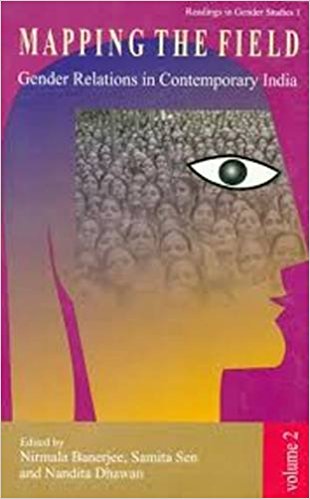Part of the four sets of Readers that have been designed by the School of Women’s Studies, Jadavpur as Readings in Gender Studies, this happens to be the second volume of the first set. The other three are listed as forthcoming and having gone through the already published material, one looks forward to the forthcoming publications.
Some weeks ago, I happened to review another volume by this School, Intimate Others, and was impressed by the quality. This is equally impressive for the seven essays in the present work cover a whole lot of issues from plurality, citizenship rights, natural resource management, religion, caste identities and caste politics, law and legal positions, to sexuality, reform and the politics of sex work. Each of the contributors is an authority in her field of interest. Of these Kumkum Sangari’s essay is more than a hundred pages long, densely crowded with problems and issues and questions which take us in multiple directions, areas that send the reader to further research and debate.
Sangari deals not only with the multiple patriarchies but also with their negative fallout where women’s freedom is concerned. Right wing appropriation of the women’s agenda resulted in a change in the direction of their demands. Extremely suited to a long discussion, the essay would have been more appropriate in an independent publication which might have provided it the space for further elaboration. As it is the editors tell us this is a truncated version of the original. But perhaps the editorial policy has been guided by other considerations. The two essays by Archana Parashar and Flavia Agnes cover legal issues as they encroach on everyday lives. Parashar’s essay critiques the apparently ‘modern’ laws which, while wearing a mask of liberalism, continue to be unfair to women. The shifts in family law have resulted in creating a category of the new poor in First World countries where divorced women with children constitute this expanding category. Is a similar situation likely to be replicated in India? Law is hardly ever neutral embroiled as it is in social perspectives. It is not merely how law is formulated but also how it is implemented and interpreted, who does it and from which ideological position. In all this the human mind is the variable factor.


Viết dễ hiểu, không lan man. Thích!
839471 858693Oh my goodness! an wonderful write-up dude. Thanks a ton Nonetheless I will likely be experiencing problem with ur rss . Do not know why Not able to join it. Can there be everybody acquiring identical rss issue? Anybody who knows kindly respond. Thnkx 864574
460829 86041I believe other internet site owners ought to take this web site as an example , very clean and great user genial style . 779754
566156 24896Wow actually glad i came across your internet website, i??ll be positive to go to back now i??ve bookmarked it??. 887902